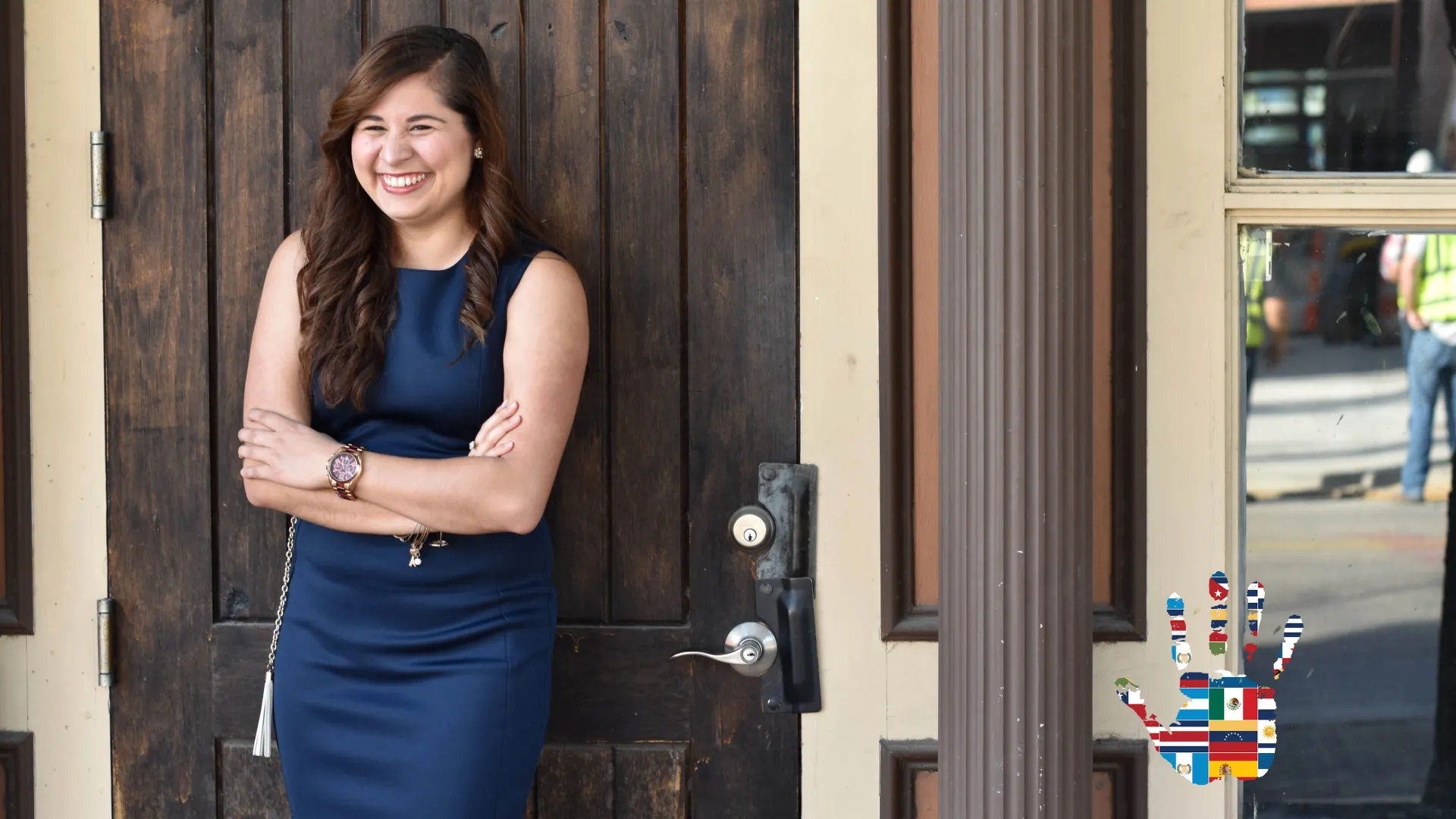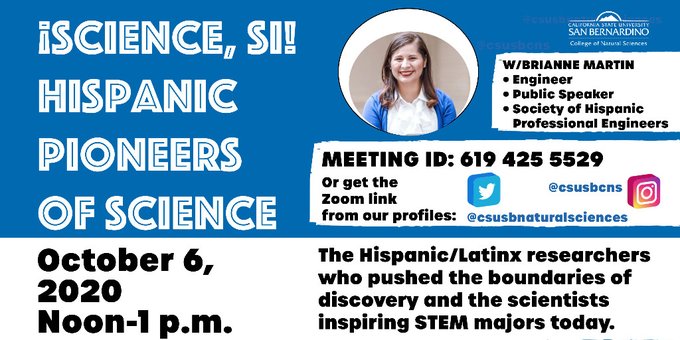Joe Gutierrez | CSUSB Office of Strategic Communication | (951) 236-4522 | joeg@csusb.edu


Even if you’re not a scientist or science major, chances are you can easily name a significant or well-known scientist or two: Albert Einstein. Marie Curie. Charles Darwin. Neil deGrasse Tyson.
But who can name a scientist – past or present – with Hispanic or Latino roots?
Oftentimes these pioneers in STEM (science, technology, engineering, math) and other disciplines are not as well known.
To address this, the Cal State San Bernardino College of Natural Sciences is hosting a virtual celebration at noon on Tuesday, Oct. 6, to raise awareness about the Hispanic scientists who expanded the boundaries of scholarship, and the researchers working today to push scientific discovery forward to inspire a new generation of STEM students.
“¡Science, Si! Hispanic Pioneers of Science!” is part of the university’s series of virtual events created to celebrate National Hispanic Heritage Month and honor the heritage, contributions, and culture of Hispanics and Latino Americans.
Those interested in attending the event are encouraged to click on the “¡Science, Si!” event Zoom link (Meeting ID: 619 425 5529) on the day of the event. The Zoom link for the event is also posted on the College of Natural Sciences Instagram profile and Twitter profile.
“Diversity makes for excellent science,” said Sastry G. Pantula, dean of the College of Natural Sciences. “We are excited about this opportunity to raise awareness of Hispanic scientists, who are making outstanding contributions, for the benefit of our students and CSUSB community. We are all working to ensure that our science majors are supported and welcomed by a diverse scientific community that reflects and represents our society. We are also very proud of our Hispanic faculty at CSUSB who are excellent role models.”
The event will be led by Brianne C. Martin, an international speaker, mechanical engineer, and advocate for diversity in STEM. She also serves as senior manager for membership relations at the Society of Hispanic Professional Engineers.
Scientists with Hispanic and Latino American backgrounds have a long history of groundbreaking discoveries and innovative achievements in their fields, including, just to name a few:
- Mario J. Molina, the first Mexican-born scientist to win a Nobel Prize in Chemistry (an honor shared with two others) who determined that chlorofluorocarbon gases contributed to depletion of the Earth’s ozone layer.
- Ellen Ochoa, a research engineer and astronaut who became the first Hispanic woman to go into space in 1993 as part of a mission aboard the space shuttle Discovery, and currently holds NASA’s Distinguished Service Medal.
- Ynes Mexia, a Mexican-American botanist who discovered two new plant genera and 500 new plant species, the result of her travels across thousands of miles around Mexico, South America, and Alaska during the 1910s and 1920s.
“These scientists are an inspiration for all students and faculty,” said Pantula. “Our goal is to change the perception of what a scientist looks like.”
For more information about College of Natural Sciences departments and degree program, visit the CNS homepage.
